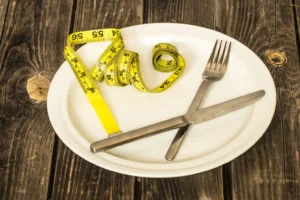How to Eat Healthy on a Budget
Introduction
How to eat healthy on a budget is a common concern for many people who want to maintain a nutritious diet without overspending. With the rising cost of food, it may seem challenging to afford fresh, wholesome meals, but eating healthy doesn’t have to be expensive. You can enjoy a balanced diet without breaking the bank by making smart choices, planning meals, and prioritizing nutrient-dense foods.
This article will explore practical strategies to help you eat well while saving money, ensuring that your health and finances stay on track whether you’re a student, a busy professional, or a family provider.
How to Eat on a Budget: Practical Tips
Planning Your Meals in Advance
Planning is key to eating healthy on a budget. Before heading to the market or grocery store, create a weekly meal plan based on affordable, nutritious ingredients. Write a shopping list and stick to it to avoid impulse buying.
Buying in Bulk
Staple foods like rice, beans, lentils, oats, and whole grains are often cheaper when bought in bulk. Purchasing large quantities of non-perishable foods can save you money in the long run. Just ensure proper storage to prevent spoilage.
Cooking at Home
Eating out and buying processed foods can be costly. Cooking your meals at home allows you to control ingredients, portion sizes, and overall costs.
Choose Affordable Protein Sources
Protein is essential for a healthy diet, but it doesn’t have to come from expensive meats. Consider budget-friendly options like eggs, beans, lentils, canned fish, and locally sourced poultry. Nuts such as groundnuts and cashew nuts are also cheap protein alternatives.
Prioritize Seasonal and Local Produce
Fruits and vegetables are cheaper when they are in season. Visit local markets to get fresh produce at lower prices. You can also buy frozen fruits and vegetables, which are just as nutritious but often more affordable than fresh ones.
Reduce Food Waste
Wasting food means wasting money. Store leftovers properly and use them in new meals. For example, leftover rice can be turned into fried rice, and vegetable scraps can be used for soups or stews.
Limit Processed and Packaged Foods
Packaged foods like snacks, instant noodles, and sugary drinks are often more expensive and less nutritious than whole foods. Instead, focus on whole grains, fresh produce, and homemade snacks.
Drink More Water
Sugary drinks and sodas can be expensive and unhealthy. Drinking water is a cost-effective and healthy alternative. Carry a reusable water bottle to avoid buying bottled drinks when you’re out.
Grow Your Own Food
If you have space, consider growing vegetables and herbs at home. Crops like tomatoes, peppers, spinach, and okra can be grown in small gardens or containers, saving you money in the long run.
Shop Smart
Compare prices at different stores, use discounts and coupons, and avoid shopping when hungry to prevent impulse purchases. Markets often offer better deals than supermarkets, especially for fresh produce.
Budget-Friendly Foods
Staple Carbohydrates
Rice (white or brown), beans (black beans, kidney beans, lentils), oats, garri (cassava flakes), sweet potatoes, yam, plantains, cornmeal (pap/ogi, tuwo)
Protein Sources
Eggs, sardines and canned fish, dried fish, groundnut (peanuts), soybeans, local chicken parts (gizzards, wings), offals (liver, kidney, intestines), crayfish, milk (powdered or evaporated)
Vegetables & Fruits
Ugu (fluted pumpkin leaves), waterleaf(gbure), ewedu (jute leaves), okra, cabbage, carrots, tomatoes, onions, bananas, oranges, pawpaw, mangoes (in season)
Healthy Fats
Coconut (grated or milk), avocados (when in season)
Affordable Snacks & Extras
Akara (bean cakes), moi moi (steamed bean pudding), roasted or boiled corn, popcorn, groundnuts
Conclusion
How to eat healthy on a budget is not only possible but also achievable with the right strategies. By planning meals, buying in bulk, choosing seasonal produce, and reducing food waste, you can enjoy nutritious meals without overspending. Small changes, such as cooking at home and prioritizing whole, affordable foods, can make a big difference in both your health and finances. With mindful shopping and smart meal preparation, eating well on a budget becomes a sustainable and rewarding habit.





